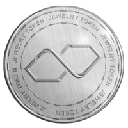-
 Bitcoin
Bitcoin $98,025.6326
0.89% -
 Ethereum
Ethereum $2,737.8725
0.46% -
 XRP
XRP $2.6131
-2.89% -
 Tether USDt
Tether USDt $1.0006
0.05% -
 BNB
BNB $655.7098
1.02% -
 Solana
Solana $173.4768
0.84% -
 USDC
USDC $0.9999
-0.01% -
 Dogecoin
Dogecoin $0.2525
0.08% -
 Cardano
Cardano $0.7950
0.93% -
 TRON
TRON $0.2442
1.19% -
 Chainlink
Chainlink $18.4045
2.42% -
 Avalanche
Avalanche $25.4213
4.17% -
 Sui
Sui $3.4185
3.80% -
 Stellar
Stellar $0.3353
-2.57% -
 Litecoin
Litecoin $132.8099
3.46% -
 Hedera
Hedera $0.2188
0.24% -
 Shiba Inu
Shiba Inu $0.0...01553
1.16% -
 Toncoin
Toncoin $3.6141
0.78% -
 UNUS SED LEO
UNUS SED LEO $9.6975
0.03% -
 Hyperliquid
Hyperliquid $24.2029
-1.70% -
 Polkadot
Polkadot $5.1915
5.03% -
 MANTRA
MANTRA $7.5295
2.14% -
 Bitcoin Cash
Bitcoin Cash $324.3149
0.81% -
 Ethena USDe
Ethena USDe $0.9985
-0.11% -
 Bitget Token
Bitget Token $4.7772
6.64% -
 Uniswap
Uniswap $9.1729
1.01% -
 Dai
Dai $1.0001
-0.02% -
 Monero
Monero $234.8248
0.80% -
 NEAR Protocol
NEAR Protocol $3.5106
6.70% -
 Pepe
Pepe $0.0...09628
2.63%
What is Ethereum’s block browser and how to use it to view transactions?
Ethereum block browsers serve as indispensable tools for navigating the blockchain, offering insights into block details, transactions, and balances.
Feb 20, 2025 at 10:55 am

Key Points
- Ethereum block browsers provide access to information about completed blocks and transactions on the Ethereum blockchain.
- The most popular Ethereum block browsers include Etherscan, Blockchair, and BlockCypher.
- Block browsers can be used for a variety of purposes, such as tracking the status of transactions, verifying balances, and viewing transaction details.
- To use a block browser, simply enter the transaction hash or block number into the search field.
- Block browsers are an essential tool for anyone who wants to interact with the Ethereum blockchain.
What is a Block Browser?
A block browser is a website or software application that allows users to view information about completed blocks and transactions on a blockchain. Block browsers are essential tools for anyone who wants to interact with the Ethereum blockchain.
How to Use a Block Browser
To use a block browser, simply enter the transaction hash or block number into the search field. The block browser will then display information about the block or transaction, including:
- The block number
- The block hash
- The timestamp of the block
- The miner who created the block
- The transactions included in the block
- The gas price of the block
- The gas limit of the block
Popular Ethereum Block Browsers
There are a number of different Ethereum block browsers available. Some of the most popular include:
- Etherscan (https://etherscan.io/) is the most popular Ethereum block browser. It offers a wide range of features, including transaction tracking, balance verification, and token tracking.
- Blockchair (https://blockchair.com/) is a powerful block browser that offers a variety of features, including historical data, charts, and analytics.
- BlockCypher (https://blockcypher.com/) is a user-friendly block browser that is designed for developers. It offers a variety of features, including a REST API and documentation.
Frequently Asked Questions
- What is the difference between a block and a transaction?
A block is a group of transactions that have been bundled together and added to the blockchain. A transaction is a single interaction with the blockchain.
- How can I find a specific transaction?
You can find a specific transaction by entering the transaction hash into the search field of a block browser.
- How can I verify my balance?
You can verify your balance by entering your Ethereum address into the search field of a block browser.
- What is the gas price?
The gas price is the amount of ETH that you are willing to pay to have your transaction processed.
- What is the gas limit?
The gas limit is the maximum amount of gas that you are willing to spend on your transaction.
Disclaimer:info@kdj.com
The information provided is not trading advice. kdj.com does not assume any responsibility for any investments made based on the information provided in this article. Cryptocurrencies are highly volatile and it is highly recommended that you invest with caution after thorough research!
If you believe that the content used on this website infringes your copyright, please contact us immediately (info@kdj.com) and we will delete it promptly.
- Hedera (HBAR) Struggling to Find Support as Investors Continue to Pull Funds Out of the Market
- 2025-02-21 23:35:23
- Bybit Makes Liquidation Data Publicly Accessible via API to Expand Information Flow for Crypto Traders
- 2025-02-21 23:35:23
- Shiba Inu Whale Makes a Power Move; But Is the Real Action Elsewhere?
- 2025-02-21 23:35:23
- SPX6900 Price Trying to Overcome a Major Resistance as MEMEX Presale Attracts Investors
- 2025-02-21 23:35:23
- Sam Bankman-Fried Details Political Donations, Expresses Optimism About Securing Presidential Pardon from Donald Trump
- 2025-02-21 23:35:23
- Shiba Inu (SHIB) Expected To Bounce To New Level As Ripple (XRP) Indicators Points Towards Uptrend
- 2025-02-21 23:35:23
Related knowledge

What is Ethereum’s Slashing mechanism and how to punish malicious behavior?
Feb 20,2025 at 03:08am
Key PointsOverview of slashingDifferent types of slashing in EthereumIncentives and consequences of slashingIdentifying and reporting slashed validatorsOngoing discussions and potential improvementsEthereum's Slashing Mechanism: Punishing Malicious BehaviorEthereum's slashing mechanism is an essential tool for ensuring network security and punishing mal...

What is the verifier node of Ethereum and how to become a verifier?
Feb 19,2025 at 06:00pm
The Verifier Node of Ethereum: A Comprehensive GuideKey Points:What is a Verifier Node?How to Become a Verifier NodeResponsibilities and Rewards of a Verifier NodeMinimum Requirements for Becoming a Verifier NodePotential Difficulties in Running a Verifier Node1. What is a Verifier Node?A Verifier Node is an independent entity on the Ethereum network th...

What is Ethereum’s staking, and how to participate and earn money?
Feb 19,2025 at 04:37pm
Key Points:Understanding Ethereum's Staking MechanismSteps to Participate in StakingBenefits and Rewards of StakingSecurity and Risk ConsiderationsTechnical Requirements and Hardware OptionsPotential Challenges and Troubleshooting TipsFAQs on Ethereum StakingWhat is Ethereum's Staking?Proof-of-Stake (PoS) is a consensus mechanism used in blockchain netw...

What is Ethereum’s DAO (Decentralized Autonomous Organization) and how does it work?
Feb 20,2025 at 03:12am
Key PointsDefinition and Structure of a DAOGovernance and Decision-Making in DAOsBenefits and Use Cases of DAOsChallenges and Limitations of DAOsWhat is Ethereum's DAO (Decentralized Autonomous Organization) and How Does It Work?Definition and Structure of a DAOA Decentralized Autonomous Organization (DAO) is an innovative governance and management fram...

What is Ethereum's multi-signature wallet and how to improve security?
Feb 20,2025 at 02:18pm
Key Points:Understanding the Concept of a Multi-Signature WalletBenefits and Drawbacks of Multisig WalletsRequirements for Setting Up a Multisig WalletStep-by-Step Guide to Generating a Multisig WalletImplementing Strategies for Enhanced Security1. Understanding the Concept of a Multi-Signature WalletA multi-signature (multisig) wallet in the Ethereum e...

What is Ethereum's oracle and how to provide data for smart contracts?
Feb 21,2025 at 01:30am
Key Points:Understanding the concept of oracles in EthereumExploring different types of oraclesDetailed guide on how to provide data for smart contractsAddressing potential challenges and considerationsWhat is Ethereum's Oracle?Oracles are crucial components in the Ethereum ecosystem, enabling smart contracts to access real-world data and off-chain even...

What is Ethereum’s Slashing mechanism and how to punish malicious behavior?
Feb 20,2025 at 03:08am
Key PointsOverview of slashingDifferent types of slashing in EthereumIncentives and consequences of slashingIdentifying and reporting slashed validatorsOngoing discussions and potential improvementsEthereum's Slashing Mechanism: Punishing Malicious BehaviorEthereum's slashing mechanism is an essential tool for ensuring network security and punishing mal...

What is the verifier node of Ethereum and how to become a verifier?
Feb 19,2025 at 06:00pm
The Verifier Node of Ethereum: A Comprehensive GuideKey Points:What is a Verifier Node?How to Become a Verifier NodeResponsibilities and Rewards of a Verifier NodeMinimum Requirements for Becoming a Verifier NodePotential Difficulties in Running a Verifier Node1. What is a Verifier Node?A Verifier Node is an independent entity on the Ethereum network th...

What is Ethereum’s staking, and how to participate and earn money?
Feb 19,2025 at 04:37pm
Key Points:Understanding Ethereum's Staking MechanismSteps to Participate in StakingBenefits and Rewards of StakingSecurity and Risk ConsiderationsTechnical Requirements and Hardware OptionsPotential Challenges and Troubleshooting TipsFAQs on Ethereum StakingWhat is Ethereum's Staking?Proof-of-Stake (PoS) is a consensus mechanism used in blockchain netw...

What is Ethereum’s DAO (Decentralized Autonomous Organization) and how does it work?
Feb 20,2025 at 03:12am
Key PointsDefinition and Structure of a DAOGovernance and Decision-Making in DAOsBenefits and Use Cases of DAOsChallenges and Limitations of DAOsWhat is Ethereum's DAO (Decentralized Autonomous Organization) and How Does It Work?Definition and Structure of a DAOA Decentralized Autonomous Organization (DAO) is an innovative governance and management fram...

What is Ethereum's multi-signature wallet and how to improve security?
Feb 20,2025 at 02:18pm
Key Points:Understanding the Concept of a Multi-Signature WalletBenefits and Drawbacks of Multisig WalletsRequirements for Setting Up a Multisig WalletStep-by-Step Guide to Generating a Multisig WalletImplementing Strategies for Enhanced Security1. Understanding the Concept of a Multi-Signature WalletA multi-signature (multisig) wallet in the Ethereum e...

What is Ethereum's oracle and how to provide data for smart contracts?
Feb 21,2025 at 01:30am
Key Points:Understanding the concept of oracles in EthereumExploring different types of oraclesDetailed guide on how to provide data for smart contractsAddressing potential challenges and considerationsWhat is Ethereum's Oracle?Oracles are crucial components in the Ethereum ecosystem, enabling smart contracts to access real-world data and off-chain even...
See all articles





















































































